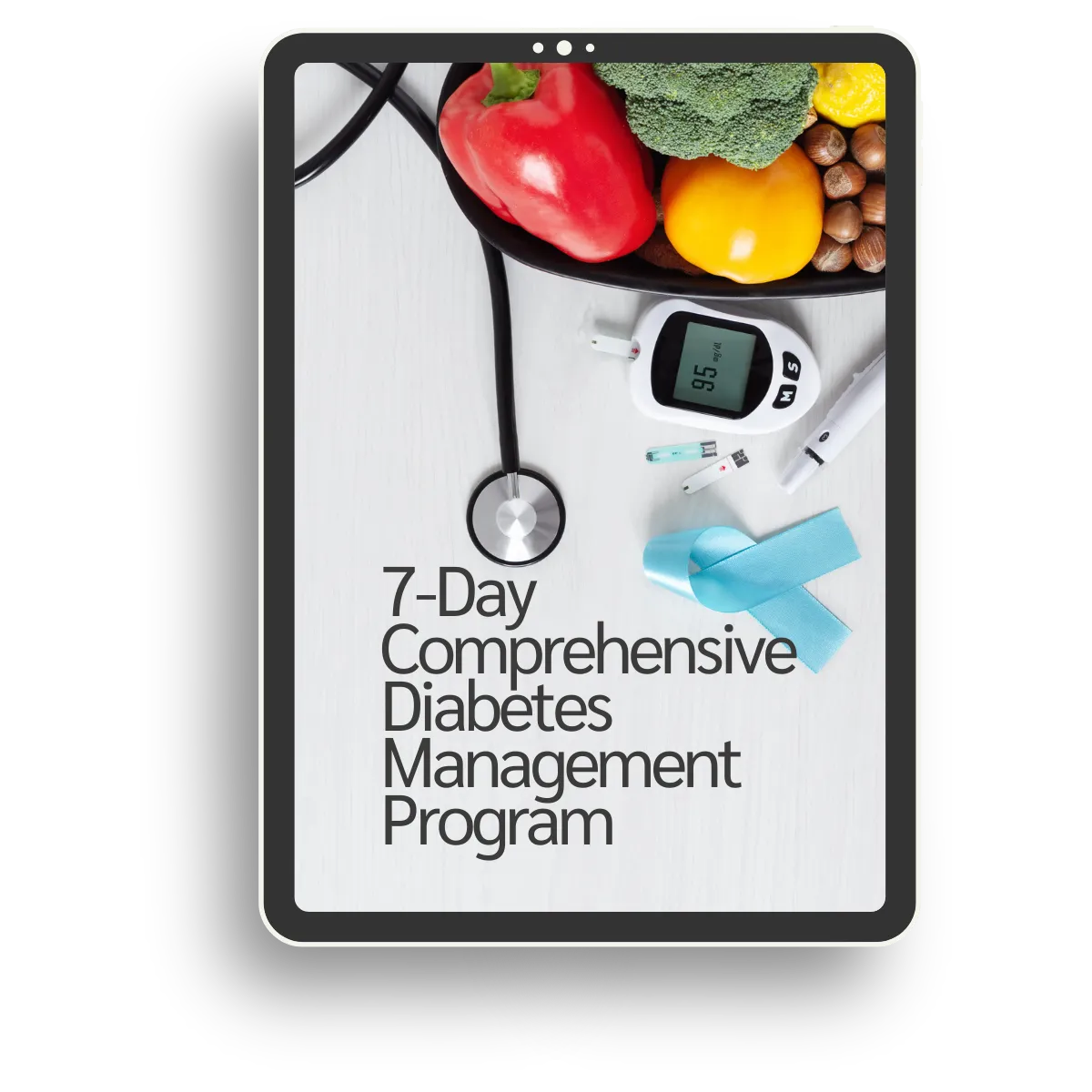Why people lose weight only to regain it, and how to keep it off for good!

The prevalence of overweight and obesity has increased over the past three decades. Thus, obesity is a big problem all around the world, and more and more people are getting it along with other health issues. Right now, there aren't many good ways to help with obesity. Some people try to change their lifestyle by eating better and exercising more, which is better than having surgery or taking medicines. Surgery has risks and medicines might not work well or be safe. Even though changing how you live can help you lose weight at first, it's usually hard to keep the weight off for a long time. Most people who are obese end up gaining back the weight they lost. Scientists have found out that our bodies have ways to fight against losing weight, and this can make us gain back the weight we lost and become obese again.
Many children and teens in the US have been diagnosed with obesity, which means they can have a lot of health troubles and make them more likely to get sick with diseases like heart problems, diabetes, high blood pressure, and even cancer. Actually, being obese is worse for your health and costs more in terms of money and health issues than smoking or drinking.
Right now, about one-third of Americans are obese, which means they're much heavier than they should be. Out of these obese people, around half to seventy percent are trying to lose weight. To help with this, many people try to change their lifestyle by eating better, moving more, and changing their behaviors. This is a common way to help people lose weight and keep it off. Researchers looked into how obese adults in the US are trying to lose weight. They found that the most popular strategies were eating less, exercising more, eating less fatty foods, and choosing foods with fewer calories . However, the usual methods like dieting, exercising, and even medical treatments haven't been very successful in helping severely obese people lose weight for a long time. This is related to the highly processed food, feedlot animals, and the addictive nature of these manufactured “foods.”
This is tricky, but changing how you live is the only good way to help with obesity since other treatments don't work that well. But there's a big problem: people often gain back the weight they lost. Even if they eat better or change how they act, many people end up gaining back around 30% to 35% of the weight they lost after just one year. And by the fifth year after losing weight, about half of them go back to their original weight . According to a study, only 1 out of every 6 overweight and obese adults were able to keep off at least 10% of their lost weight for a year, at some point in their lives.
Furthermore, this is hard because changing how you live to fight obesity might be a good idea, but it's not always easy. Many people who tried to eat better or change their habits, no matter what they did. Around 30% to 35% of the weight they lost comes back just one year after they started, and by the fifth year after losing weight, about half of them go back to how much they weighed before. A study from NHANES (1999–2006) found that only 1 out of every 6 adults who were overweight or obese managed to keep off at least 10% of their lost weight for a year, at some point in their lives].
The way our body handles things like how much we weigh, what we eat, and how we use energy is controlled by different chemicals in our body, which come from places like our gut and fat. All of these signals come together in a part of our brain called the hypothalamus, which helps control how much energy we use, how active we are, and how much we eat. Some people think that our body can't tell the difference between going on a diet and not having enough food, so when we start losing weight, our body tries to stop bad effects from not having enough to eat . This can cause big changes in our body's chemicals, making us more likely to gain back the weight we lost. Recent research looks at these changes in the body when obese people lose weight and why they might make it easier for them to gain the weight back.
When our body weight changes, the energy we use also changes. So, when we lose weight, our body might work to bring the weight back. Resting energy expenditure is the energy needed for basic body functions, like keeping our cells and organs working. Total energy expenditure includes all the energy our body uses for things like digestion and physical activity. People who weigh more use more energy and eat more too. When we lose weight, our resting energy expenditure goes down, and this is a big part of the total energy we use. After we lose weight, our body might make us gain it back by making us use even less energy, and this can make us hungry and want to eat more. This can create a cycle where we go from being obese to losing weight to gaining it back and so on. This is called "adaptive thermogenesis," and it makes it hard to keep the weight off. So, treating obesity is tough because our body fights against keeping a lower weight.
Next the POUNDS LOST study looked at how different diets affect body weight and the energy our body uses, but they found that the kind of food we eat doesn't really change them. Ebbeling and their team did a test with overweight people. They split them into three groups, each group ate a different diet for four weeks: one with less fat, one with low glycemic index foods, and one with very little carbohydrates. Among those who lost 10% to 15% of their starting weight, the group that ate the very low carbohydrate diet had the smallest decrease in the energy their body used, which is a good thing for preventing weight gain].
Another study looked at five different diets that had different amounts of protein and how fast sugar gets into the blood (glycemic index). They wanted to know which diet helps people keep off the weight they lost for about 26 weeks. They found that a diet with lots of protein and a low glycemic index was the best for keeping off the weight. Thus it is beneficial to lose weight by eliminating all forms of sugar from the diet.
Additionally, there was also a study with rats that became overweight from their diet. When their food was changed to have fewer carbohydrates and more fat, they lost weight. But if they were switched back to their regular rat food, they gained more weight than the rats that always ate regular rat food. This shows that a diet low in carbohydrates might stop our body from changing the way it uses energy and help us keep the weight off.
Old advice for doctors and their patients used to say that if you make small changes in what you eat, like eating a bit less, you could lose a lot of weight over time. They thought that cutting out just a couple of cans of soda from your daily diet could help you lose around 30 pounds in a year, 60 pounds in two years, and so on. But when people couldn't keep off the weight, they were blamed for not trying hard enough.
Now, we've learned that these old ideas are wrong. When we lose weight, our bodies also react by making us feel more hungry and less full, which makes it harder to keep losing weight. This happens because our body has a system that controls how much we eat. So, even if we try hard, our body can make it tough to lose weight and keep it off. Therefore it is necessary to eliminate all sugars in the diet, limit carbohydrates while at the same time increasing intake of fiber. Eliminating sugar, especially fructose will help heal the liver which is necessary for your body to loose weight. Decreasing carbohydrates in the diet will help prevent the stimulation of insulin spikes and episodes of hunger. Then, fiber will slow down insulin spikes while giving the gut’s microbes the necessary food it needs to stay healthy.
Diets that are low in carbohydrates and high in fat are effective to lose weight, and reverse metabolic syndromes and type2 diabetes. Thus, fixing the problems that come from following advice to eat less fat and more carbohydrates, or calorie counting been associated with the rise in obesity. When we eat a lot of carbs, our bodies release a hormone called insulin, which makes us store more fat and use less of it for energy. This can make us feel like we're not getting enough energy, which makes us hungry and lowers how much energy our body uses. So, if we switch to a low-carb, high-fat diet while increasing fiber intake, we can lose weight without too much effort.
Unlike carbs, fats and protein in our diet, can help give a little boost to how much energy we use when we're resting. Diets that have more protein might help us keep off the weight we lost, especially when the diet has low glycemic foods that don't quickly raise our blood sugar. This could be because protein makes us feel full more than carbs and it might also make our body use up more energy overall.
How to lose weight and keep it off.
Making lasting changes in behavior and managing obesity need ongoing attention. Even the best short-term efforts probably won't keep working well unless you keep getting help and support over time. Below are a few simple steps to start losing weight and healing your body.
Lose Weight:
Eliminate Added Sugars:
-
Eliminating the intake of added sugars, especially sugary beverages like sodas and fruit juices. These sugary drinks can contribute a lot of extra calories without making us feel full, leading to weight gain. Fructose, a form of sugar is only metabolized by the liver is especially bad for your metabolic health and weight.
-
Switching to water, unsweetened beverages, or consuming whole fruits can help cut down on excess sugar.
-
Replace sugary sodas with water or unsweetened herbal tea.
-
Choose plain yogurt and add fresh fruit for sweetness instead of flavored yogurts with added sugars.
-
Read food labels and avoid products that are processed or have high amounts of added sugars, such as sugary cereals and snacks.
Increase Fiber Intake:
Eating more fiber-rich foods, like whole grains, fruits, vegetables, and legumes, can help you feel full and satisfied with fewer calories. Fiber also slows down digestion and helps regulate blood sugar levels, which can contribute to weight loss.
-
Start your day with bacon and eggs with berries and nuts for added fiber.
-
Swap white bread and pasta for whole unprocessed grain varieties.
-
Snack on fresh fruits and raw vegetables, like apples with peanut butter or carrot sticks.
Focus on Real Foods:
Prioritizing whole, unprocessed foods over processed and highly refined options. Real foods like lean proteins, whole grains, healthy fats, and fresh produce can provide essential nutrients and support weight loss by reducing excess calorie intake.
-
Opt for grilled chicken or fish with steamed vegetables instead of fried fast food.
-
Prepare homemade vegetable stir-fries using olive oil and a variety of colorful veggies.
-
Choose whole fruits as snacks, such as an orange or a handful of grapes, instead of sugary packaged snacks. Even though most fruit has natural fructose sugars, the fiber slows down the absorption. If you eat one orange you get the fiber with it. If you drink a glass of orange juice it might contain 6-8 oranges without any fiber. Thus, your liver and body gets a bolus of sugar strait to the system. This will spike you blood sugar levels immediately due to the fructose/sugar content has more than a bottle of Coke or Pepsi.
Keep the Weight Off:
Practice Mindful Eating:
Be aware of what and how much you're eating. Pay attention to hunger and fullness cues, eat slowly, and savor your food. Mindful eating can help prevent overeating and promote a healthy relationship with food.
-
Eat slowly and savor each bite, paying attention to flavors and textures.
-
Put away distractions like phones and TVs while eating to fully focus on your meal.
-
Stop eating when you feel comfortably satisfied, rather than overly full.
Regular Physical Activity:
Staying active is crucial for maintaining weight loss. Engage in regular exercise that you enjoy, such as walking, jogging, cycling, or dancing. Finding activities you like can make it easier to stick with a fitness routine over the long term.
-
Go for a brisk 30-minute walk or jog in the park three times a week.
-
Try a fun fitness class like dance, yoga, or Zumba to keep exercise enjoyable.
-
Incorporate strength training exercises, like squats, lunges, and push-ups, a couple of times a week.
Stay Connected to Support:
Join a local running or walking group to stay motivated and meet like-minded individuals.
Enlist a workout buddy to exercise together and keep each other accountable.
Participate in online forums or social media groups dedicated to healthy living and weight maintenance.
-
Maintain a support network that encourages healthy habits.
-
This could include friends, family members, or support groups that share your health goals.
-
Having people to lean on and share experiences with can provide motivation and accountability for keeping the weight off.
Breaking the sugar addiction and improving overall health requires a combination of determination, planning, and self-reflection. By understanding the addictive nature of sugar and the impact of highly processed foods, individuals can reclaim control over their dietary choices. Implementing the suggested steps, including setting clear goals, eliminating sugary foods, meal planning, increasing dopamine through enjoyable activities, regular exercise, and self-improvement, empowers individuals to break free from the sugar addiction cycle and pave the way for a healthier future. Remember, you have the power to make positive changes and improve your blood sugar levels, ultimately transforming your life for the better.
We appreciate your engagement and value your input. Feel free to share your thoughts by replying or commenting below. You can also reach out to us via email at diabetesrevolution.com to continue the conversation or leave a review to let us know which topics you would like to explore further. We are eager to connect with you and provide assistance if you're facing challenges with your diabetes management or if you simply want to learn more about how it functions. We encourage you to take advantage of our diabetes workshop and download our FREE guide, "The Simple 7-Day Plan to Help You Lose Weight Quickly, Get Healthy Fast, and Transform Your Life!" While it may not cover every aspect of leading your best life, this guide offers a proven 7-day plan that has delivered results for individuals like you. Visit diabetesrevolution.com to access the guide and start your transformative journey.
Facebook @thediabetesrevolution2020
Instagram @thediabetesrevolution2020
Twitter @TheDiabetesRev





